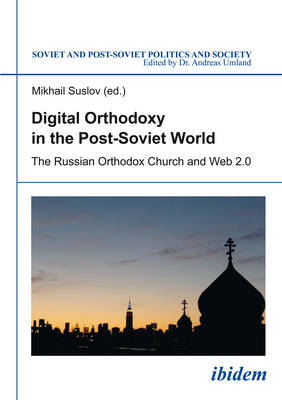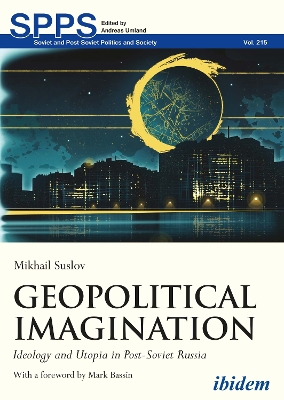Soviet and Post-Soviet Politics and Society
2 total works
Digital Orthodoxy in the Post-Soviet World - The Russian Orthodox Church and Web 2.0
by Mikhail Suslov
Published 7 December 2021
This volume explores the relationship between new media and religion, focusing on the digital era's impact on the Russian Orthodox Church. A believer may now enter a virtual chapel, light a candle through drag-and-drop, send an online prayer request, or worship virtual icons and relics. In recent years, however, Church leaders and public figures have become increasingly skeptical about new media. The internet, some of them argue, breaches Russia's "spiritual sovereignty" and implants values and ideas alien to Russian culture. This collection examines how Orthodox ecclesiology has been influenced by its new digital environment, such as the intersection of virtual religious life with religious experience in the "real" church, the role of clerics on the Russian Web, and the transformation of the Orthodox notion of sobornost' (catholicity), asking whether and how Orthodox activity on the internet can be counted as authentic religious practice.
In his timely book, Mikhail Suslov discusses contemporary Russian geopolitical culture and argues that a better knowledge of geopolitical concepts and fantasies is instrumental for understanding Russias policies. Specifically, he analyzes such concepts as Eurasianism, Holy Russia, Russian civilization, Russia as a continent, Novorossia, and others. He demonstrates that these concepts reached unprecedented ascendance in the Russian public debates, tending to overshadow other political and domestic discussions. Suslov argues that the geopolitical imagination, structured by these concepts, defines the identity of post-Soviet Russia, while this complex of geopolitical representations engages, at the same time, with the broader, international criticism of the Western liberal world order and aligns itself with the conservative defense of cultural authenticity across the globe. Geopolitical ideologies and utopias discussed in the book give the post-Soviet political mainstream the intellectual instruments to think about Russias exclusion -- imaginary or otherwise -- from the processes of a global world which is re-shaping itself after the end of the Cold War; they provide tools to construct the self-perception of Russia as a sovereign great-power, a self-sufficient civilisation, and as one of the poles in a multipolar world; and they help to establish the Messianic vision of Russia as the beacon of order, tradition, and morality in a sea of chaos and corruption.

